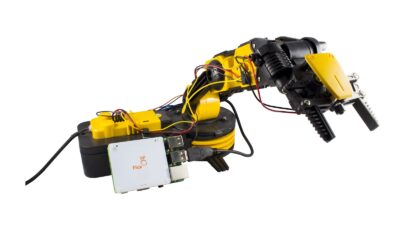Transforming Auditing with AI
Artificial Intelligence (AI) has emerged as a game-changer in the field of auditing, offering transformative solutions that improve accuracy, efficiency, and effectiveness. Traditionally, auditing processes relied heavily on manual review and analysis, making them time-consuming and prone to errors. However, AI-powered tools are revolutionizing this landscape by automating repetitive tasks, analyzing large volumes of data, and identifying anomalies or potential risks with unprecedented speed and precision.
By leveraging advanced machine learning algorithms and data analytics techniques, AI-enabled audit tools can quickly sift through vast amounts of financial data, identify patterns, and detect irregularities that may indicate fraudulent activities or compliance issues. This enables auditors to focus their efforts on high-risk areas and allocate resources more strategically, ultimately enhancing the overall quality and reliability of audit outcomes.
In addition to improving accuracy, AI-powered audit tools also streamline the audit process by reducing manual effort and increasing operational efficiency. Tasks that once required hours or even days to complete can now be accomplished in a fraction of the time, allowing auditors to devote more attention to value-added activities such as data analysis, risk assessment, and client communication.
Enhancing Accuracy and Precision
One of the key benefits of AI in auditing is its ability to enhance accuracy and precision by minimizing human error and bias. AI algorithms can analyze data objectively and consistently, without being influenced by subjective factors or cognitive biases that may affect human judgment. This results in more reliable audit findings and recommendations, reducing the likelihood of financial misstatements, compliance violations, and other audit-related risks.
Moreover, AI-powered audit tools can continuously learn and adapt to new information, allowing them to improve over time and stay ahead of evolving threats and challenges. By leveraging historical data and feedback loops, these tools can refine their algorithms, enhance their predictive capabilities, and provide more insightful and actionable insights to auditors and stakeholders.
Embracing AI for Future Auditing Success
In today’s fast-paced and data-driven business environment, the adoption of AI-powered audit tools is no longer a luxury but a necessity for organizations seeking to remain competitive and compliant. By harnessing the power of AI, auditors can gain deeper insights into financial data, identify emerging risks and opportunities, and provide greater value to their clients and stakeholders.
However, successful implementation of AI in auditing requires careful planning, investment in technology infrastructure, and ongoing training and development of audit professionals. Organizations must also address concerns around data privacy, security, and ethical use of AI to ensure that audit processes remain transparent, accountable, and trustworthy.
Overall, the future of auditing is bright with the promise of AI, offering unprecedented opportunities to enhance accuracy, efficiency, and effectiveness in financial reporting and compliance. By embracing AI-powered audit tools and leveraging their capabilities to the fullest extent, organizations can navigate the complexities of the modern business landscape with confidence and achieve greater success in their audit endeavors.
Optimizing Audit Processes with AI
AI-powered tools offer a range of features that optimize audit processes and drive efficiency gains. These tools can automate routine tasks such as data collection, validation, and reconciliation, freeing up auditors to focus on more complex and value-added activities. By harnessing the power of AI, auditors can accelerate the audit timeline, reduce turnaround times, and deliver insights to stakeholders in a timelier manner.
Furthermore, AI algorithms can analyze unstructured data sources such as emails, documents, and multimedia content, extracting relevant information and identifying patterns or trends that may warrant further investigation. This capability enables auditors to gain a more comprehensive understanding of business operations and risks, leading to more informed decision-making and audit planning. With AI, auditors can uncover insights that may have previously gone unnoticed, helping organizations proactively address issues and mitigate risks before they escalate.
AI #AIinAuditing #ArtificialIntelligence #AuditProcess #FinancialReporting #RiskManagement #Compliance #DataAnalytics #MachineLearning #Efficiency #Accuracy























